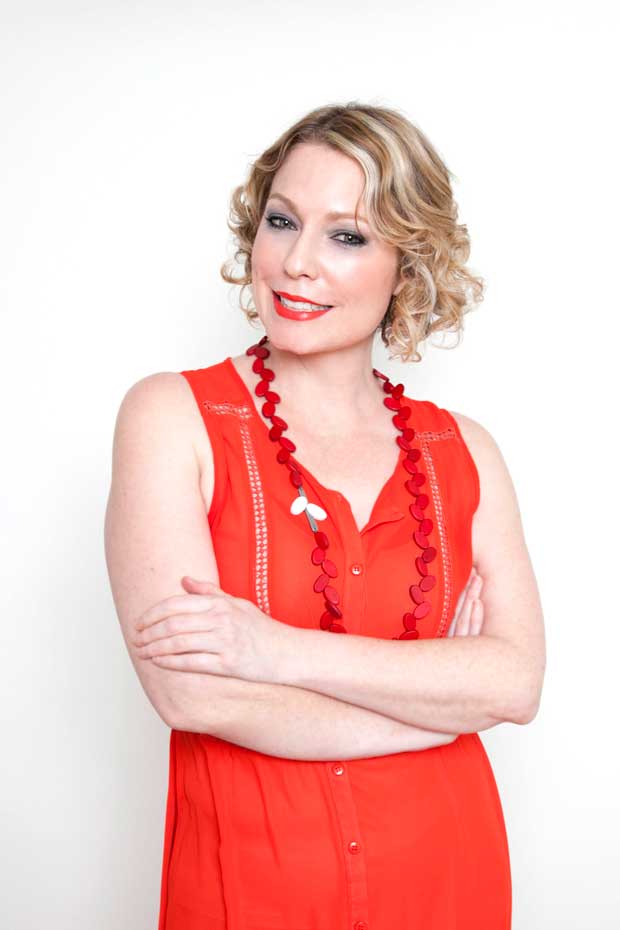Disability advocate Minnie Baragwanath: losing my sight at 14 hasn’t held me back

As a teenager Minnie Baragwanath was told her disability would hold her back. But the winner of the 2013 Sir Peter Blake Leadership Award is determined to make a difference for the lives of disabled people.
When Minnie Baragwanath was diagnosed with a rare sight condition as a 14-year-old, she was also given a list of milestones she wouldn’t achieve in her life. She wouldn’t have a career, wouldn’t own her own home, marry or have children, and would likely die earlier than her peers.
She was relieved to know why her sight was deteriorating (Stargardt’s, an incurable disease deteriorating central vision and leaving many sufferers legally blind) but deeply disturbed by her predicted future. That was 32 years ago.
Today Minnie not only has the Sir Peter Blake Leadership Award (2013), a New Zealand Order of Merit for service to people with disabilities (2014), a BA in English Literature, a Bachelor of Communications Studies and a graduate diploma in Economic Development but she also makes things happen. In 2011, Minnie founded Be Accessible*, an organisation that aims to make New Zealand the most accessible and inclusive country for all people with disabilities.
Minnie’s own experiences since losing her sight have informed her work at Be Acessible. As a student studying at Massey University, in the pre-audio and e-books days she relied on her mother (when she was free) to read aloud her textbooks and novels. Now she uses a combination of programs including Jaws, a screen-reading software, and Zoomtext magnification software.
Be Accessible challenges businesses and organisation to aim for making every building and community fully accessible. Accessibility is about more than providing a disabled toilet and a lift. It is about making every physical place and every piece of information available to everyone in spite of their capacity.
“If New Zealand can’t get it right, who can? We have a very strong foundation of human rights and social change and I think we have a responsibility to lead in this area. We could contribute to the world, part of our responsibility of being a very privileged nation. Maybe we can be the social conscience,” she says. Idealistic, yes, says Minnie, but why not?
As if Stargardt’s is not challenge enough, Minnie’s most recent setback is breast cancer. “It’s a jolting reminder about life’s delicate balance. The last five to six years of my life have been very focused on Be Accessible which is probably not a great formula for keeping well. This being sick thing has really had me searching for balance.” For her, that balance has come from being with beloved family and friends, and spending time tinkering in the garden.
It is three months since her last breast cancer surgery and Minnie says this experience has intensified her focus on accessibility. She was devastated to realise how challenging the health system is for people with disabilities who then have another medical condition.
“It isn’t set-up to cope with the fact that you can have breast cancer and be partially blind. It became complex. How do you get to an appointment if you can’t read the letter that’s sent to you?”
This experience has been a confronting demonstration of where the gaps in accessibility still lie.
“Some parts of my treatment were handled beautifully and amazingly, don’t get me wrong. But when you have 20 different types of medicine to take – and you are partially blind – how do you read the labels? ”
What does excite Minnie is the number of tertiary students that Be Accessible has placed in employment for the summer period. “This could mean the difference between them finishing their degrees and going straight into employment or falling between the gaps. We get so excited by these achievements,” she says.
She’s also thrilled that Wellington is aiming to become the most accessible capital in the world. She sees this as a boon for tourism in a sector often ignored.
Minnie often tells the Be Accessible team: “We are not selling vacuum cleaners – everyone knows what a vacuum cleaner does. We need to educate people why accessibility matters.”
*Be Accessible is a social change initiative and a holistic framework for accessibility with a mission to create a truly accessible country for us all.
Be Accessible is managed by the Be. Institute, a social enterprise that aims to work across all sectors and communities throughout New Zealand. The belief is that every person has their part to play in the creation of accessibility regardless of how big or small the change. Be offers assessments to businesses wanting to rate their accessibility for disabled people, leadership programmes and employment initiatives. For more information, visit beaccessible.org.nz


